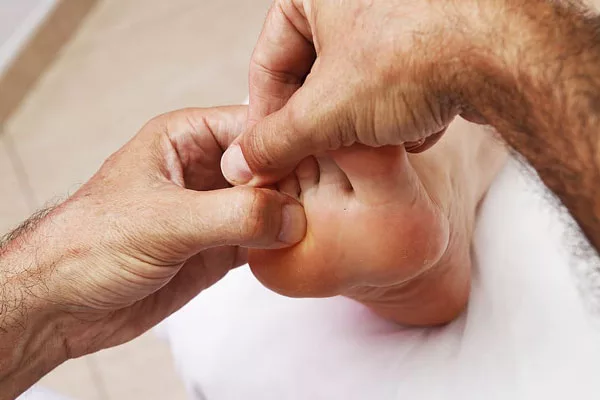Alternative Therapies for Seniors: Holistic Wellness in 2026
Table of Contents
- Introduction
- Alternative Therapies List
- Complementary and Alternative Therapies
- Alternative Therapies in Health and Medicine
- Alternative Therapies for Mental Health
- Scientifically Proven Alternative Medicine
- Alternative Therapies Definition Medical
- What Are the 5 Major Types of Complementary and Alternative Medicine?
- Alternative Medicine vs Modern Medicine
- How to Start a Blog About Your Alternative Therapy Journey?
- Conclusion
- Frequently Asked Questions
Introduction
Alternative Therapies: The New Age Elixir for Seniors. Ah, retirement! The where you can kick back, relax, and… try acupuncture? You heard that right! Alternative therapies are not just for the young and restless; they’re gaining traction among seniors too. But why? Let’s explore.
Alternative Therapies List
Today, complementary and integrative health is a modern approach that blends traditional and alternative therapies to promote whole-person wellness.
From acupuncture to aromatherapy, the list of alternative therapies is as long as your grandma’s knitting yarn. Here are some popular ones, all part of a broader integrative health movement focused on treating the whole person:
- Acupuncture
- Aromatherapy
- Herbal Medicine
- Reiki
- Yoga
Integrative medicine combines conventional and alternative therapies to support seniors’ overall well-being.
Complementary and Alternative Therapies
Hold on a minute! Before you start mixing essential oils like a mad scientist, let’s clarify some terms. Complementary medicine refers to therapies that are used alongside mainstream medicine (also known as conventional medicine), such as acupuncture, massage, and chiropractic, to promote holistic wellness. In contrast, alternative therapies are used instead of mainstream medicine.
Alternative medicine complementary treatments are non-mainstream therapies—like homeopathy, aromatherapy, meditation, and colonic irrigation—that can be used in conjunction with conventional care.
Complementary approaches integrate both conventional and alternative therapies to improve health outcomes and address physical, mental, and spiritual health aspects. So, you can have your cake and eat it too—or in this case, your pills and your essential oils.
Alternative Therapies in Health and Medicine
Alternative therapies are not just for hippies anymore. Many people now use these approaches alongside or instead of standard medical treatment. Even mainstream doctors are recommending treatments like acupuncture for pain relief. CAM practices and CAM treatments, such as herbal medicine and acupuncture, are increasingly being integrated into healthcare.
Why? Because these therapies can offer potential benefits and health benefits for seniors, sometimes without the side effects of conventional medicine. Alternative therapies can address a variety of health issues, including chronic pain and stress.
Alternative Therapies for Mental Health
Feeling blue? Try some green—green tea meditation, that is! Therapies like meditation and mindfulness are not just for your “inner peace”; they can actually improve your mental health. These techniques can also positively impact physical health by supporting overall wellness and aiding in the management of chronic conditions.
Studies have shown that mindfulness can reduce symptoms of anxiety and depression, and there is scientific evidence supporting the use of mind-body techniques for both mental and physical well-being.
Scientifically Proven Alternative Medicine
Before you start chanting mantras, let’s talk science. The National Center for Complementary and Integrative Health (NCCIH), a leading national center, provides authoritative, evidence-based information and supports research on alternative therapies. The national center also conducts and sponsors clinical trials to evaluate the safety and effectiveness of these approaches. Therapies like acupuncture and certain herbal medicines, including herbal supplements, have scientific backing and are being studied for their potential health benefits. So, you’re not just relying on grandma’s old wives’ tales; you’re following evidence-based practices.
Alternative Therapies Definition Medical
In medical terms, an alternative therapy is any treatment that is not part of standard Western medicine. Traditional practices such as acupuncture and acupressure have historical roots in ancient Asian philosophy and have been validated over time through both research and cultural acceptance. Alternative treatments include a wide range of approaches, such as herbal remedies, energy therapies, and other holistic methods. Body-based practices like chiropractic, massage, and cupping focus on direct manipulation of the body to promote self-regulation and healing, while therapies that address energy flow, such as energy healing and acupressure, aim to restore balance within the body’s meridian system. So, if it involves needles but not in a hospital, it’s probably an alternative therapy.
What Are the 5 Major Types of Complementary and Alternative Medicine?
These categories are part of alternative medicine cam, which includes a wide range of practices and products used to supplement or replace standard healthcare.
- Mind-Body Interventions: Think meditation and mental healing.
- Biologically-Based Practices: This includes herbal medicines, herbal products, natural products, and dietary supplements. A dietary supplement can include vitamins, minerals, and herbal extracts used in CAM.
- Manipulative and Body-Based Methods: Think chiropractic care.
- Energy Therapies: Reiki and qi gong fall under this.
- Whole Medical Systems: Traditional Chinese Medicine, for example.
Alternative Medicine vs Modern Medicine
It’s like comparing apples and oranges—or should we say, acupuncture and aspirin? Both have their pros and cons. While modern medicine is based on scientific research and often relies on prescription medicines to treat specific conditions, alternative medicine offers a more holistic approach. Some people choose to use alternative therapies alongside or instead of prescription medicines, but it’s important to consult a healthcare provider to ensure safe and effective care.
How to Start a Blog About Your Alternative Therapy Journey
Ever thought about sharing your alternative therapy journey? Starting a is easier than ever, especially with AI tools that can write posts for you. Just a thought!
Conclusion
So there you have it, folks! Alternative therapies offer a holistic approach to wellness, especially in your golden years. Why not give it a try?
Frequently Asked Questions
What Are the Most Popular Types of Alternative Therapies for Seniors?
Acupuncture, herbal medicine, tai chi, and mindfulness meditation are among the most popular choices for seniors. Acupuncture is often used to treat conditions like neck pain in seniors.
How Do I Know if an Alternative Therapy Is Scientifically Backed?
Look for studies and research that support the efficacy of the therapy you’re interested in. Reputable sources include scientific journals and healthcare organizations.
Consulting a healthcare professional or a CAM practitioner can help you interpret scientific research and determine which therapies are evidence-based and safe. Both healthcare professionals and CAM practitioners can recommend safe options and guide you in making informed decisions.
What Exactly Are Alternative Therapies?
Alternative therapies are non-conventional treatments that can complement or replace traditional medicine. Complementary health approaches include a variety of therapies, such as acupuncture and herbal remedies, that are used alongside standard care to support holistic wellness. Herbal medicine, in particular, is often used as a complementary treatment for various health conditions.
Are Alternative Therapies Safe for Seniors?
Generally, yes. However, it’s crucial to consult your healthcare provider before starting any new treatment, especially if you’re taking other medications or have existing health conditions.
How Do I Choose the Right Alternative Therapy for Me?
Research is key. Look into different therapies, read reviews, and consult professionals. Your healthcare provider can also guide you in making an informed decision.
Are Alternative Therapies Covered by Insurance?
Coverage varies by provider and plan. Always check with your company to see if the therapy you’re interested in is covered.
How Can I Find a Certified Practitioner for Alternative Therapies?
Look for a CAM practitioner who is certified or licensed in their field, and always check their credentials and regulation status before starting treatment. Most CAM practitioners are not regulated by statutory bodies, so it is important to use professional associations or voluntary registers to find reputable providers. Websites, reviews, and recommendations from friends can also be helpful.
Can Alternative Therapies Help with Mental Health?
Yes, therapies like mindfulness and meditation have been shown to improve mental health by reducing symptoms of anxiety and depression.
Are There Any Side Effects to Alternative Therapies?
Side effects vary depending on the therapy. Always consult your healthcare provider for personalized advice.
Can I Use Alternative Therapies Alongside Traditional Medicine?
Many people do! This is known as complementary therapy. However, it’s essential to consult your healthcare provider to ensure there are no conflicts with your current treatments.




2 Comments
Comments are closed.